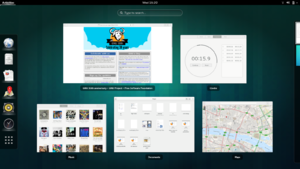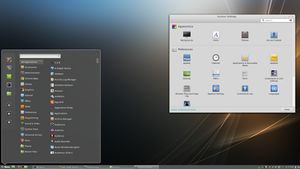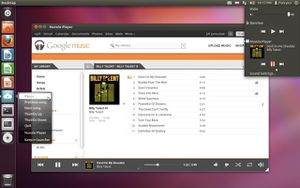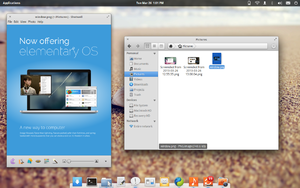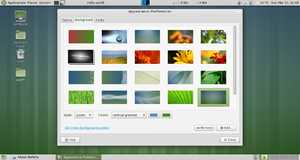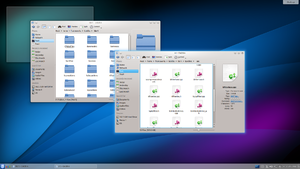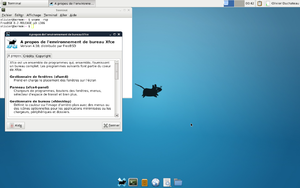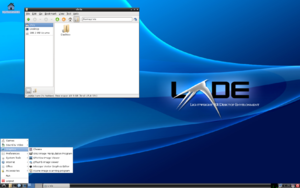We are still actively working on the spam issue.
Choosing a Distro
Page status: outline
To-do: Flesh out descriptions and shit, add photos of DEs
Before researching and choosing the right distrobution for you, you must have in mind what you want to use it for. Facebook machine? Programming? Gaming (lel)? A secondary consideration is hardware. Linux generally tends to play well with underpowered or aging computers, but you may want to try lighter distros.
There are three things you want to compare when distro shopping.
1. Distro quirks
3. Application library
Contents
Distro families
For more information, visit each distro's homepage, Wikipedia, and DistroWatch.
Debian
A community-developed distro focused on stability. Has the biggest user base if you include distros based on it. Comes in various releases with different tradeoffs of stability/up -to-datedness. More or less the most important distro.
Ubuntu
Takes Debian Testing, makes sure its packages are usable, adds drivers, adds handholding, and adds spyware. Not to fear, it's easily removable ([fixubuntu.com]). Comes with Unity by default. Repo is supplemented with user-maintained PPAs, so if it's available for Linux you can probably find it here. The most popular desktop distro with the most guides and solutions on various forums.
Developed by Canonical, the evil empire of the free software world.
Mint
Takes Ubuntu, removes spyware, adds proprietary shit like Flash right in the iso. Developed the MATE and Cinnamon desktop environments. Uses Ubuntu repos.
Elementary
Takes Ubuntu and makes it look like OS X by developing the Pantheon desktop environment. Uses Ubuntu repos.
Crunchbang
Takes Debian Stable and rices it for you. Openbox, Tint2, the works. Comes with drivers. Uses stable and backport Debian repos.
Fedora
Developed by Red Hat, probably the biggest corporate backer of Linux, as a testing bed for its commercial RHEL distro. Bleeding edge -
OpenSUSE
Developed by Novell as a testing bed for its commercial SUSE distro. Best implementation of KDE.
Arch
A community-developed distro focused on
Gentoo
Install it.
Slackware
Other
Mageia
PCLinuxOS
Puppy
How new r u
babby's first loonix
Ubuntu with fixubuntu.com
Mint
Elementary
DEs:Any
Reasonably experienced
Crunchbang
Now you can do WMs
Neckbeard tier
LFS
Desktop Environments
Gnome 3
Cinnamon - Mint
Unity - Ubuntu
http://www.ubuntu.com/tour/en/
Pantheon - Elementary
MATE (Gnome 2) - Mint
XFCE
LXDE
Window Managers
Explanation of stacking/tiling shit
Stacking
Openbox
the rest/who cares
Tiling
AwesomeWM
dwm
xmonad
the rest/who cares
